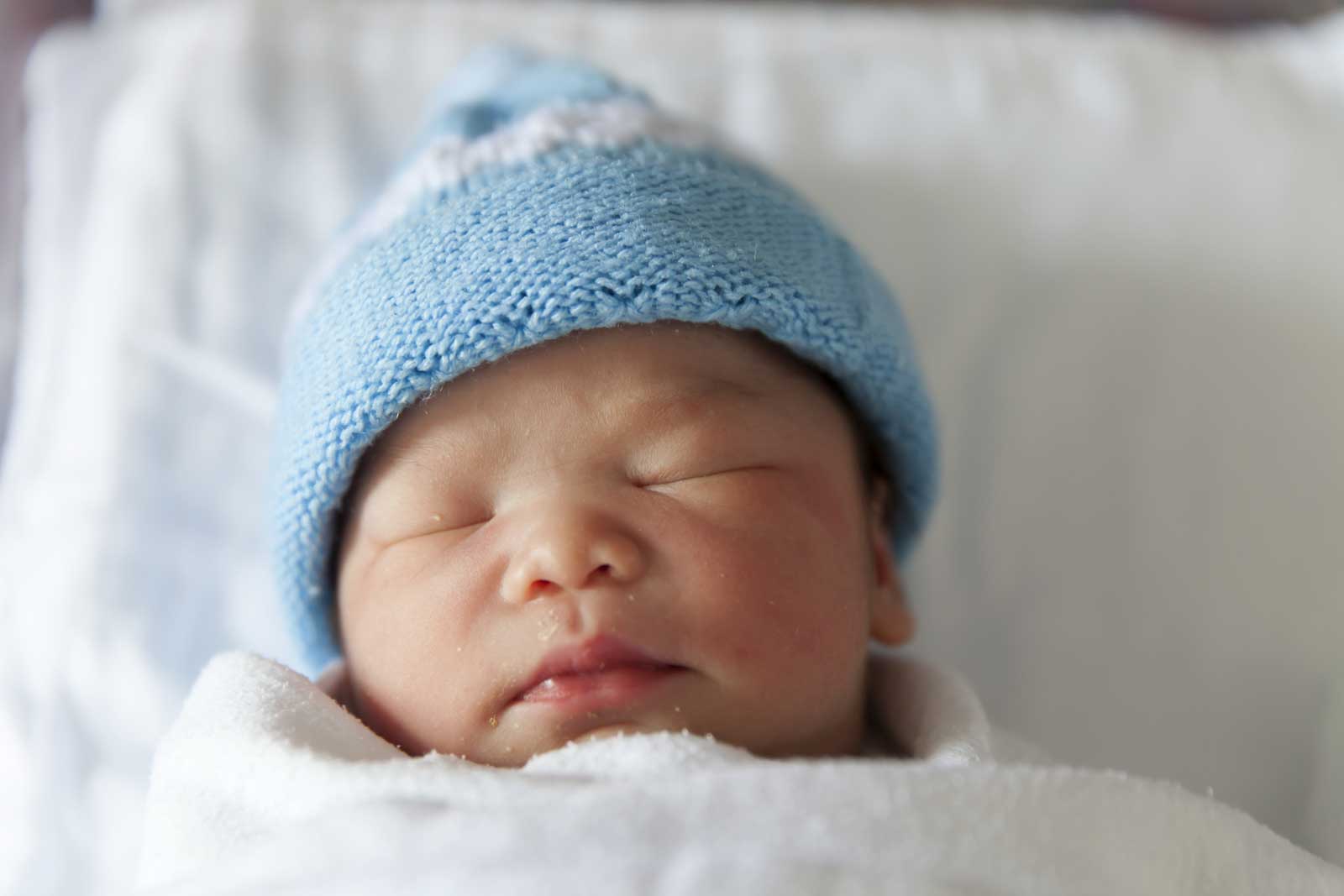There are a variety of perfectly normal things that babies do, but frequently cause parents to have questions or concerns.
Hiccups
Hiccups are very common and are not a reason for concern. You do not need to do anything to treat them. Occasionally, they may make your baby a little fussy or spit up a little.
Sneezing
Sneezing is also very common and does not require any treatment. If your baby’s nose is running or is very congested, then you should see your doctor.
Tremors
Babies have an immature nervous system and their hands, feet, arms and legs often tremble or quiver. The same thing can happen to their chins and lips. This is perfectly normal. Babies also have a startle reflex, and will jerk and move their arms out, then in, then cry, in response to sudden movements or sounds.
Nasal congestion
Most babies sound a little congested. Their noses are quite small, they have to breathe through them (they cannot breathe through their mouths), and babies don’t clear their throats. This leads to some noisy, congested sounding breathing at times.
Breathing patterns
Most newborns make some sounds as they breathe; it often surprises new parents just how much noise they make. It is also normal for newborns to have an irregular breathing pattern. They may breathe slowly, then quickly to “catch up.” They may alternate between shallow, quiet breaths and deeper, louder breaths. They may pause for a few (less than 6) seconds in their breathing. The air may make a sniffling or whistling sound as it goes through the nose. Babies also occasionally cough and sigh. All of these things are perfectly normal. If your baby has labored breathing, repeated grunting sounds, stops breathing, or turns blue, seek medical care immediately.
Strange sounds and funny faces
In addition to her breathing patterns, your baby may make a variety of other sounds as well, such as occasional grunting, gagging, sniffling, coughing and sneezing. He may grunt and strain when having a bowel movement. Babies are actually quite noisy, which comes as a surprise to many first-time parents.
Rashes
Babies have a lot of normal rashes; their skin has to adapt to living in the air rather than liquid. If you have any question about whether the rash is normal, then see your doctor. There is also a description of the normal baby rashes on our website.
Birthmarks
Birthmarks are common in babies. The most common are pink flat marks on the forehead or eyelids (“angel kisses”) and on the back of the neck (“stork bites”). These usually fade and go away over time. A number of other birthmarks are common as well.
Skin peeling
Skin peeling is also normal. You do not need to use lotion but you can if you like. Sometimes the skin around the wrists or ankles cracks a little; you can use some petroleum jelly (Vaseline) in those areas.
Purple hands and feet
Babies often get dark red or purple hands and feet. It may happen when they are cold but it can also happen anytime. This too is due to an immature nervous system which controls blood flow to the arms and legs. It will not harm your child. If your child’s face, lips, or chest ever turn blue, this is an emergency and does need to be checked right away.
Bowed legs & crooked feet
It is normal for babies to have legs that look bowed out. They will straighten over time. It is also normal for the feet to be turned in, as long as you can straighten them easily. Also, babies have flat feet. The arch will develop later.
Crossed eyes
It is normal for babies eyes to cross. It should resolve by the time he is 6 months old.
Red spot in eye
It is normal for blood vessels in the eye to break and bleed a little during birth. It is due to pressure in the birth canal. The little red spots of blood will go away in several weeks as the body absorbs the blood.
Misshapen skull and facial features
Babies are born with their skull bones separated so that the head can be compressed to fit through the birth canal. After birth, their heads are often somewhat misshapen and are not perfectly round. They can also have some scalp swelling, and their faces can be swollen from the birth process. This will all resolve over the first few weeks.
Orange crystals in the diaper
It is normal for babies to have a sandy, orange-colored substance in their diaper. These crystals form from the urine and will go away.
Infrequent stools & constipation
Most babies do not get true constipation, which is hard balls of stool. They do often change patterns, from having several bowel movements per day to having one every few days. This is totally normal as long as the stool is soft. It is also normal for babies to grunt and strain to make a bowel movement.
Breast swelling
It is normal for the breasts to swell in both girls and boys. There can even be a few drops of clear to milky discharge. This is normal and will go away over time. It is due to maternal hormones. If the breast becomes red and swollen, your baby needs to see her doctor.
Vaginal discharge and bleeding
It is normal for baby girls to have some clear to white vaginal discharge, and they can also have a “mini-period” with some slight vaginal bleeding or blood-tinged discharge. This is perfectly normal and is from maternal hormones.
Spitting up and reflux
All babies spit up or reflux some, especially when burping or right after a feeding. It often looks like a lot of fluid but usually is not. Spitting up is usually normal as long as your baby has no breathing problems or choking or turning blue, is gaining weight well, is not excessively fussy and has no feeding difficulties. Normal reflux or spitting up is also effortless; it just kind of bubbles up and the baby is not forcefully vomiting or retching. Vomiting is forceful projection of a large amount of stomach contents. If your baby vomits more than once, he should be evaluated.
Gagging
Babies have to learn almost everything, including how to coordinate breathing and swallowing. Sometimes they gasp or gag when feeding or just swallowing. This is usually normal as long as your baby does not turn blue, or does not have loud or labored breathing, difficulty breathing, swallowing or feeding.
Crying and fussiness
All babies cry; this is the only way they can communicate that they need something. Crying can be caused by: hunger, anger/frustration, boredom, fatigue, overstimulation, uncomfortable position, to warm, too cold, gas pains, too full, having a bowel movement, or pain. There are other causes as well. Most healthy, normal babies cry several hours a day if you add it all up. Over time, you will learn to tell from how your baby is crying what she may need. Almost all babies have a fussy time every day, usually in the evening.
Comforting your baby depends on what is making her cry, and on her unique temperament. What works for one baby will not work for the next. You have to get to know your baby. Rest assured, crying and fussiness is usually normal, and if you have any concerns, discuss them with your doctor. Common comfort techniques include pacifiers, swaddling with a thin blanket, holding, rocking, talking quietly, quiet music, holding in different positions, walking or pushing in a stroller, and vibrating infant seats.
Formula changes do not usually benefit fussy babies, though there can be specific conditions that cause fussiness that can be helped by certain formulas. However, these are far less common than formula companies would have you believe. It is best to let your doctor advise you about any formula changes.
If your baby is very gassy, try burping her more frequently. If she is bottle fed, try holding the bottle more upright and be sure she is not swallowing much air. You may want to try changing bottles or nipples. If she is fussy when trying to pass gas or have a bowel movement, try sitting her up, or pulling her knees up to her belly while she is lying down.
Temperament
Every baby is unique and has a distinct personality right from the start. Some babies are calm and quiet, others jumpy, others fussy. Some like to be held and some don’t. Some prefer to be bundled and some hate it. Some prefer stimulation and others prefer just to sleep. It will take time for you to get to know your baby and to understand his needs. It is just part of the wonderful adventure of parenting, of getting to know this new and special person.


